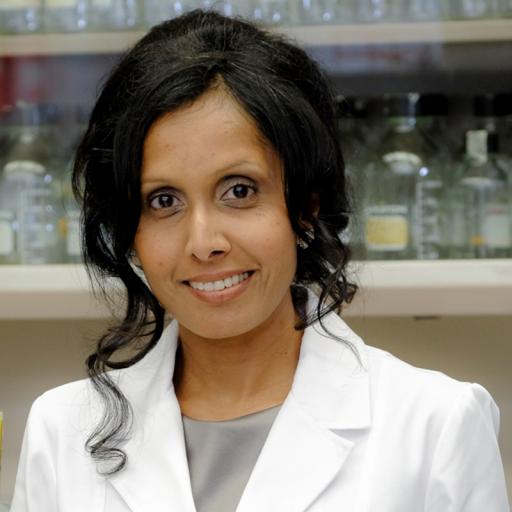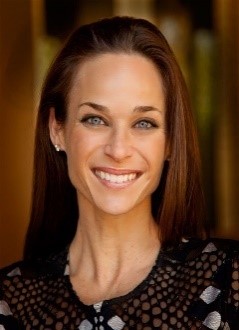Director, Center for Alternatives to Animal Testing (CAAT), Professor, Evidence Based Toxicology, Joint Appointment: Department of Molecular Microbiology and Immunology, Bloomberg School of Public Health, Johns Hopkins University

Dr. Hartung’s main goal is to work towards a paradigm shift in toxicity testing to improve public health. Due to his background as head of the European Center for the Validation of Alternative Methods of the European Commission (2002-2008), he is involved in the implementation of the 2007 NRC vision document “Toxicity Testing in the 21st Century – a vision and a strategy”. He has furthered the translation of concepts of evidence-based medicine to toxicology (evidence-based toxicology). This aims for systematic assessment of the quality of all tools for regulatory toxicology and the development of new approaches based on annotated pathways of toxicity (the Human Toxome).
Dr. Hartung has a broad background in clinical and experimental pharmacology and toxicology documented in more than 350 publications. Previous work centered on the immune recognition of bacteria, including pyrogen testing, and the induced inflammatory response. In experimental and clinical approaches, the pharmacological modulation of these responses was studied.
Dr. Hartung relocated to the U.S. in early 2009 and established the directorship for the Center for Alternatives to Animal Testing (CAAT) a laboratory for developmental neurotoxicity research based on genomics and metabolomics. The respective technologies were made available by a Thought-Leader Award from Agilent.
Ph.D., Founding Executive Director of the Canadian Centre for Alternatives to Animal Methods (CCAAM), University of Windsor

Dr. Charu Chandrasekera is the primary architect responsible for designing and developing the Canadian Centre for Alternatives to Animal Methods from a back-of-the-envelope idea to reality. She is an internationally-established professional with expertise in human-based biomedical research, science policy and ethics of animal experimentation. She received her PhD in Biochemistry & Molecular Biology from the Faculty of Medicine at the University of Calgary and completed her post-doctoral training at the University of Michigan Medical School and Wayne State University School of Medicine in Michigan. During her research endeavours in heart failure and diabetes, which involved both in vitro cellular models and in vivo animal models, Dr. Chandrasekera experienced first-hand the limitations that render animals ineffective as “models” for human disease. With this realization, Dr. Chandrasekera left conventional academic research in 2013 and joined the Physicians Committee for Responsible Medicine as their Director of Laboratory Science to promote alternatives. Her recent work has been published in various peer-reviewed scientific journals, and she has been invited to present her work and provide expertise at national and international conferences, symposia and workshops
Dr. Chandrasekera advocates for a paradigm shift in which our species, Homo sapiens, serves as the quintessential animal model in research. She promotes integrative human-based research frameworks incorporating every level of human complexity—from DNA to whole-organism level and beyond—that can serve as the primary platform from which hypothesis-driven basic science discoveries are launched. She emphasizes that through the widespread use of currently available and newly developing human-based in vitro, ex vivo, in vivo, and in silico methods, scientists can garner greater replication and translation that benefits the understanding, prevention, and treatment of human disease.
Regents' Professor and Lincoln Professor of Emerging Technologies, Law and Ethics, Sandra Day O'Connor College of Law

Gary’s research interests include legal aspects of genomics and personalized medicine, the use of genetic information in environmental regulation, risk and the precautionary principle, and governance of emerging technologies such as nanotechnology, neuroscience, biotechnology and artificial intelligence. He teaches courses in Law, Science and Technology, Genetics and the Law, Biotechnology: Science, Law and Policy, Health Technologies and Innovation, Privacy, Big Data and Emerging Technologies, and Artificial Intelligence: Law and Ethics. He was named a Regents’ Professor in 2011 and also is a professor in ASU’s School of Life Sciences, a Distinguished Sustainability Scientist in ASU’s Julie Ann Wrigley Global Institute of Sustainability, and is a Lincoln Professor of Emerging Technologies Law and Ethics with the Lincoln Center for Applied Ethics at ASU. Prior to joining ASU in 1999, Professor Marchant was a partner at the Washington, D.C., office of Kirkland & Ellis, where his practice focused on environmental and administrative law. During law school, he was Editor-in-Chief of the Harvard Journal of Law & Technology and editor of the Harvard Environmental Law Review and was awarded the Fay Diploma (awarded to top graduating student at Harvard Law School). Professor Marchant frequently lectures about the intersection of law and science at national and international conferences. He has authored more than 150 articles and book chapters on various issues relating to emerging technologies. Among other activities, he has served on five National Academy of Sciences committees, has been the principal investigator on several major grants, and has organized numerous academic conferences on law and science issues.
Co-Founder and Executive Chairman AnaBios
Jack A. Reynolds, DVM, DACLAM, DACVP and FIATP is a Founding Partner and the Executive Chairman of AnaBios. He recently retired from Pfizer as Senior Vice President of R&D and Worldwide Head of Safety Sciences. With over 30 years in the pharmaceutical industry, he is a seasoned leader within the pharmaceutical industry, having made substantial contributions to numerous development programs and important drug approvals. At Pfizer, he defined and implemented a new paradigm to elucidate, understand, manage and mitigate the inherent risks of medicines. This had a profound impact on Pfizer’s early stage portfolio in reducing attrition, improving drug development effectiveness and expanding their R&D portfolio. This early de-risking of drug development programs is only now being emulated by others.
Dr. Reynolds has the reputation of an industry trailblazer from his extensive work and leadership in building partnerships with regulatory agencies, and through leadership roles in professional societies, industry executive groups and scientific organizations. He is the founder and former Advisory Board Chair of the Drug Safety Executive Council, which now includes a membership of almost 2000 industry professionals and plays an important cross-industry role in collaboratively evaluating, validating and qualifying new technologies for safety testing and decision making. He is board certified in both Veterinary Pathology and Laboratory Animal Medicine and is a Fellow of the International Academy of Toxicological Pathologists. Dr. Reynolds is currently an Adjunct Professor in the Division of Pharmacotherapy and Experimental Therapeutics at the School of Pharmacy, The University of North Carolina at Chapel Hill and is a member of the Scientific Advisory Committee of the Global Alliance for TB Drug Development. In 2004, Dr. Reynolds received a Washington State University Distinguished Alumnus Award for Research and Teaching.

Founder/Owner Shamar Advisors, LLC, Adjunct Faculty , School for the Future of Innovation in Society at Arizona State University

Amy has over 15 years of professional experience in business development, client relations, strategic client development and retention, and sales. She has been able to successfully apply these skills to a multitude of fields including investigations, developing a wellness program for one of the largest physical therapy companies in Arizona, and most recently as head of development for a commercial general contractor. Amy is now utilizing her skills to work towards the advancement and implementation of alternative research models to replace the use of animals in biomedical research. Shamar Advisors was created to help advance ethical science. She has consistently proven that no matter what challenge is in front of her, she will create brand awareness, greatly increase revenue and build lasting relationships. The common thread to Amy’s success is a wholehearted belief in the companies she represents and a genuine desire to serve and connect people.
Amy is a native of Arizona and attended Arizona State University on a full-ride gymnastics scholarship. She earned her bachelor’s degree in Political Science with a minor in Business then graduated from the University’s College of Law with a Juris Doctorate.
Amy has a passion for many things. Her respect and support of our military men and women allowed her to proudly serve as an Honorary Commander for the 56th Maintenance Group at Luke Air Force Base from 2016-2018. In 2019, she was inducted as a Blue Blazer with Fighter Country Partnership to continue serving the men, women, families and mission of Luke AFB. She is also an advocate for the Performing Arts and currently serves on the Arizona Opera’s Business Council. Additionally, Amy serves on the Board of Directors for East Valley Partnership.
Associate Professor, School of Mathematical and Natural Sciences, Arizona State University
Karen Watanabe is an associate professor in the School of Mathematical and Natural Sciences who develops mathematical models of biological systems to better understand and predict how chemicals in the environment cause adverse effects in living organisms. Prior to joining ASU in 2016, she was a faculty member at Oregon Health & Science University where she taught a variety of graduate courses including Environmental Toxicology and Risk Assessment, and a seminar focused on scientific communication and presentation skills. She received her PhD in mechanical engineering from the University of California, Berkeley where she majored in bioengineering and conducted research in collaboration with the School of Public Health to develop a model of benzene toxicokinetics in humans that accounted for measurement uncertainty and biological variability in the population.
Dr. Watanabe has received Scientific and Technological Achievement Awards from the U.S. Environmental Protection Agency for research related to modeling endocrine active chemicals and their effects upon reproduction in the context of ecological risk assessment. She has also participated in national and international workgroups focused on adverse outcome pathways and cancer risk assessment
